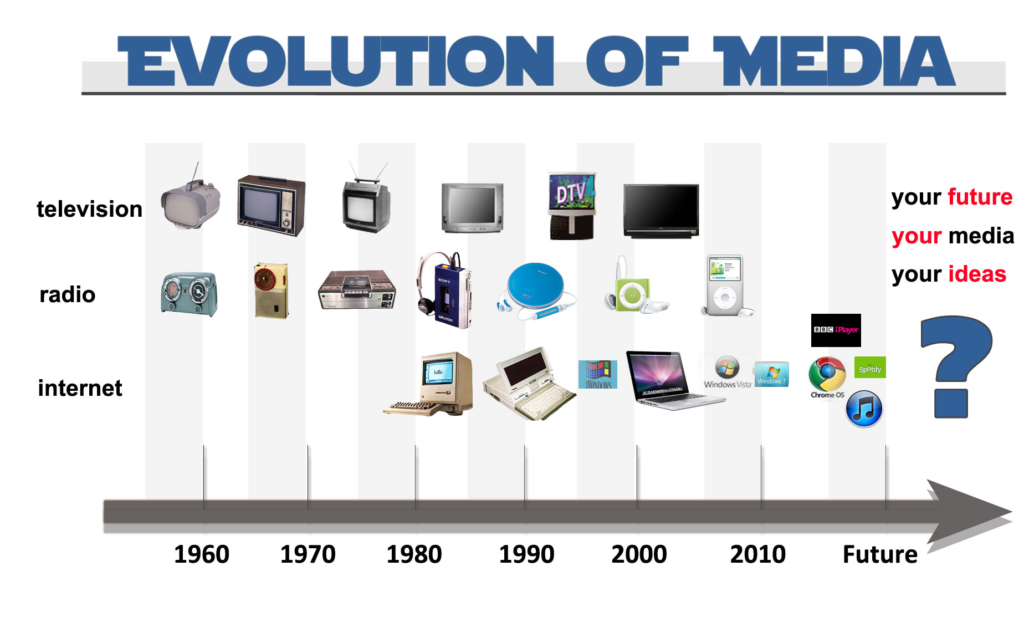
Do our thoughts primarily stem from our personal expectations and ideas, or are they more influenced by external factors such as societal norms and the opinions of others? Have you ever thought about it? Am I influencing your though now? 🙂
Media, in its various forms, has been a cornerstone of how we consume information, shaping our understanding of the world. In the earlier generations, newspapers held sway, providing a trusted source for news. However, as time progressed, traditional media outlets like television and radio emerged, each with its own perspective and potential biases.
The evolution continued with the rise of 24/7 news channels in the digital era, transforming the way we receive information. The constant flow of news became both a boon and a challenge. While it offered immediate access to unfolding events, it also contributed to sensationalism and a relentless pursuit of breaking news at the expense of in-depth analysis.
Gradually, these established media channels became susceptible to influence, aligning themselves with particular political parties or ideologies. The information landscape transformed further with the advent of social media. Individuals found a platform to share their views, initially seeming like a breath of fresh air, a break from the controlled narratives of traditional media.
Yet, this empowerment of the individual voice came with its own set of challenges. Political parties and ideologists recognized the power of social media and sought to influence it. Automated bots and engagement with IT experts became tools to manipulate public opinion.
This shift has led to a concerning dilemma. While individuals appreciate the authenticity of information coming from fellow citizens, the infiltration of political biases into social media has blurred the lines between genuine discourse and manipulative narratives.
In response to these challenges, one proposed solution is to approach news consumption with a critical mindset. Rather than accepting news at face value, taking the time to delve into the root of the issue is crucial. Avoiding hasty decisions based on breaking news or daily updates, and dedicating time to in-depth exploration of topics can provide a more comprehensive understanding.
The worry, as expressed by many, is that the common person is left grappling with a mire of conflicting information. It has become increasingly difficult to discern the real essence of news from the orchestrated narratives pushed by political entities.
Addressing this complex issue requires a delicate balance between preserving freedom of expression and mitigating the harmful effects of misinformation. As consumers of information, it becomes crucial for individuals to develop a critical eye, to question sources, and to seek a diversity of perspectives.
In conclusion, the evolution of media, from newspapers to social media, has brought both empowerment and challenges. Navigating this dynamic landscape demands a proactive approach from both individuals and society at large, fostering a media environment that prioritises authenticity and diverse viewpoints.
